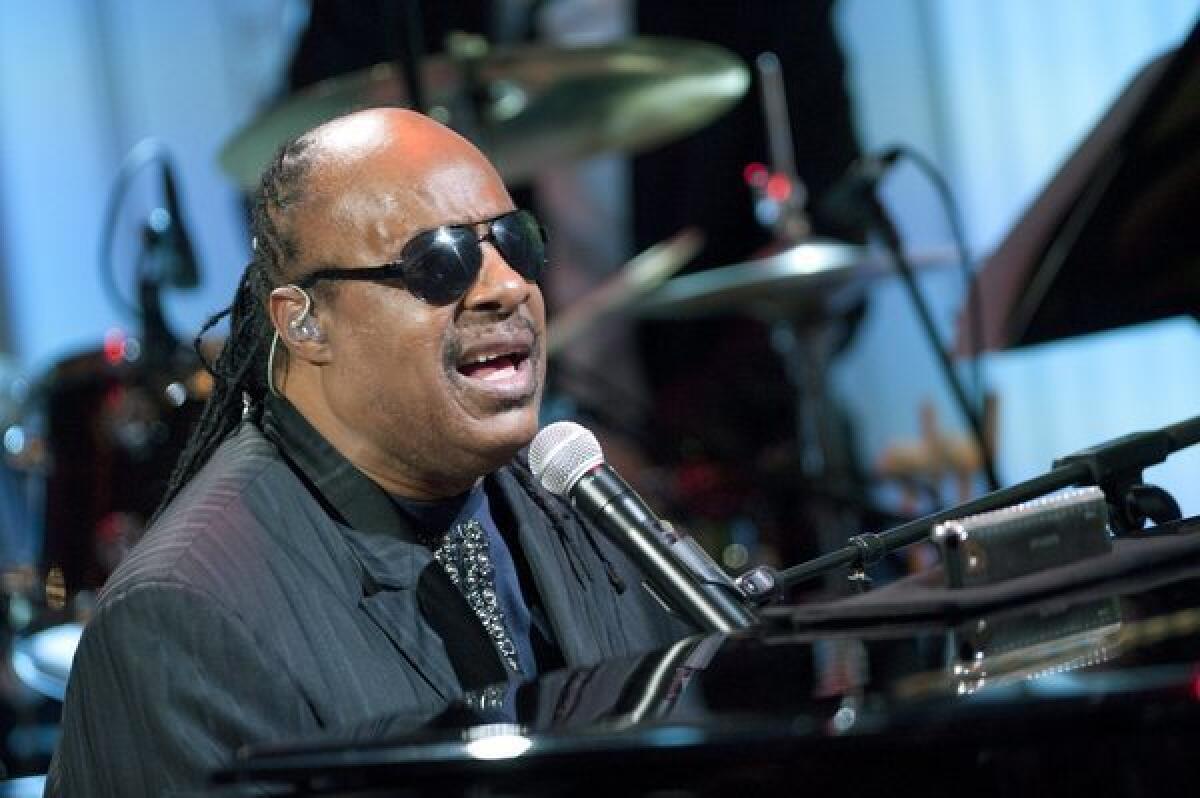Perils of ‘stand your ground’

- Share via
After George Zimmerman was acquitted in the slaying of Trayvon Martin, Stevie Wonder declared that he would never again perform in Florida or in any state with a “stand your ground” law. Over the last week, moral outrage over the reckless expansion of self-defense laws in Florida has fueled an international tourism boycott, protests around the country, and sent 200 students to the state Capitol in Tallahassee to await Florida Gov. Rick Scott’s return.
The Zimmerman verdict, like the acquittals in the Rodney King case and the fatal police shooting of Amadou Diallo (memorialized by Bruce Springsteen in “41 Shots”), has focused national attention on fundamental questions of criminal justice. Laws are designed to control behavior by deterring certain actions and incentivizing others. In 2005, when Florida adopted the nation’s first “stand your ground” law, our collective moral understanding of what constitutes a justified killing was transformed. In endorsing more aggressive self-protection, the Florida Legislature tacitly acknowledged that guns would play an enhanced role in the state.
Unsurprisingly, the National Rifle Assn. played a role in drafting and promoting the bill, alleging that it would “correct a serious problem for citizens who chose to protect themselves in the face of attack by violent criminals.” Money and letters of support flowed to the Florida Senate’s Criminal Justice Committee, helping to ensure enactment of the law.
The NRA and its affiliate, the American Legislative Exchange Council, have played a similar role in the 20 states that have followed Florida’s lead, and also in Iowa, Alaska and Minnesota, where similar laws are pending. Why would the organization involve itself in promoting this kind of legislation? One reason is that it has an interest in encouraging gun sales. Firearms sales in the United States generate more than $6 billion in annual revenue.
Since the enactment of the “stand your ground” law, concealed weapons permits in Florida have tripled and now exceed 1.1 million. This has happened during a time when violent crime in the United States has decreased by more than 15%. In Florida, despite a growing population, violent crime is down 25%.
So what happens when, despite all of the evidence to the contrary, you convince people that they must stand their ground, armed to the hilt, against a scourge of violent crime? In an extensive study published in June 2012 in the Tampa Bay Times, the effects of this combination were chillingly obvious.
The law has been used in more than 200 cases since 2005, with defendants ranging in age from 14 to 81. Nearly 70% of defendants who invoked the law were set free. Defendants were significantly more likely to prevail if the victim was black, and the defense worked even in cases in which deadly force was used against unarmed victims by people who developed a “reasonable fear” for their life and safety only after provoking the victim. On this point, former Florida state Sen. Durell Peaden, who sponsored the law in 2005, has stated that he never intended to depart from preexisting self-defense law and provide a defense for those “who pursue and confront people.”
Former President Jimmy Carter responded to the Martin verdict with this statement: “I think the jury made the right decision based on the evidence presented.” He’s technically correct, but that perspective is too narrow.
It is hard to argue that this trial or verdict was determined by the “stand your ground” law, which was only introduced via Seminole County Circuit Judge Debra S. Nelson’s jury instruction that the defendant “had no duty to retreat and had the right to meet force with force.” But a micro-focus on the trial ignores a more fundamental question. To what extent do we, as a state and a nation governed by law, bear responsibility for what happened to Trayvon Martin by encouraging near-universal gun ownership and endorsing vigilante self-defense?
After the verdict, U.S. Atty. Gen. Eric H. Holder Jr. told the NAACP that “it’s time to question laws that senselessly expand the concept of self-defense and sow dangerous conflicts in our neighborhoods.” He’s right. We live in a country where three people die from gunshots every hour, and where the slaughter of elementary school children fails to generate support for even the most modest gun control. We also live in a country where more expansive self-defense laws have tragic outcomes because our threat perceptions are determined by the race, ethnicity, age and gender of those we have learned to fear.
Joelle Anne Moreno is a professor and associate dean for faculty research and development at Florida International University College of Law.
More to Read
A cure for the common opinion
Get thought-provoking perspectives with our weekly newsletter.
You may occasionally receive promotional content from the Los Angeles Times.










